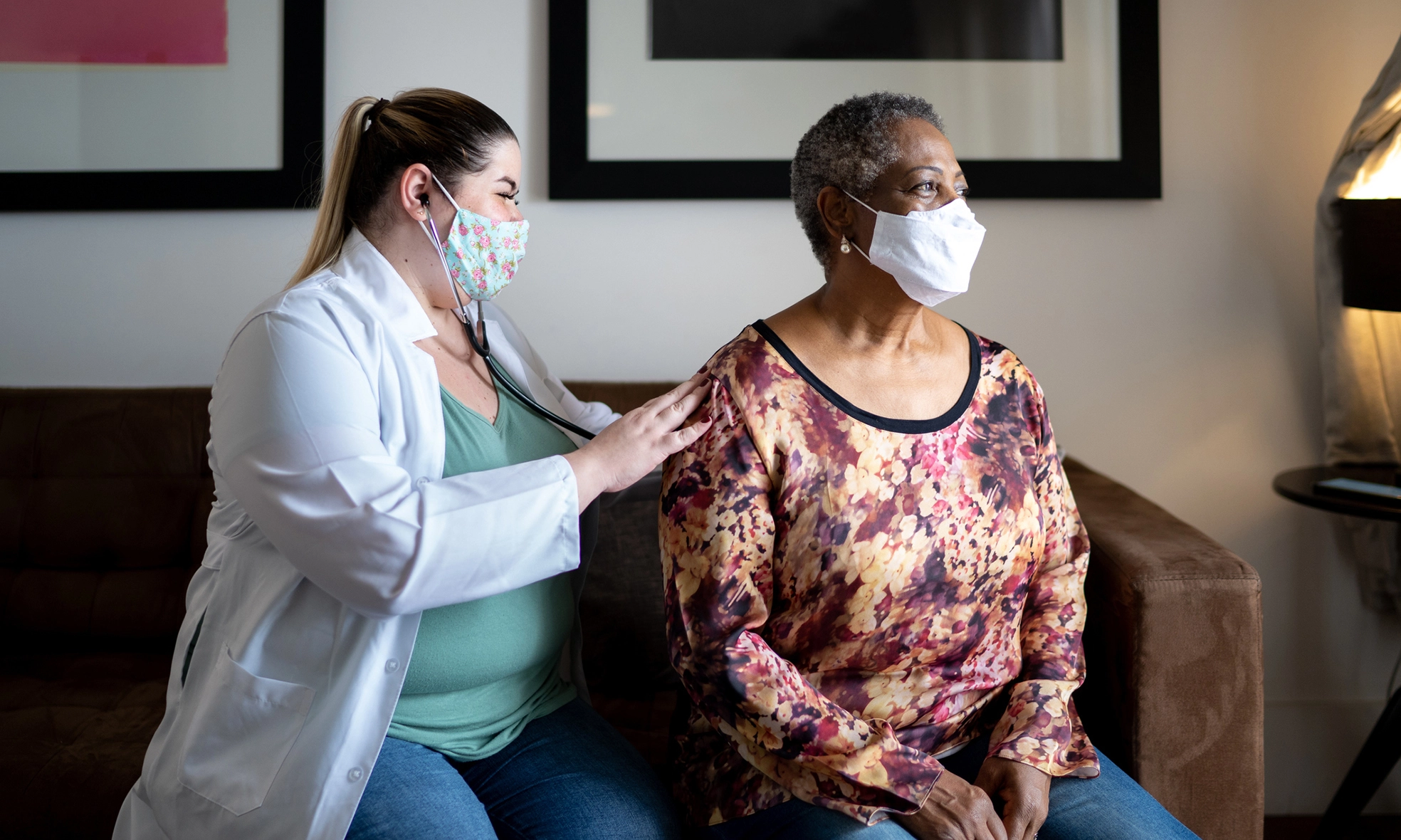Are you recovering from a recent illness and need help managing your condition at home? Do you live far from a loved one who needs assistance with everyday tasks? Home health and home care are two services that can help older adults safely age in place in the comfort of their home.
The terms home health and home care are often used interchangeably. However, there are distinct differences between the two terms.
Recognizing the differences between home health and home care can help you understand the level of care each provides and which services may be most beneficial to you or your loved one.
What is home health?
Home health provides skilled medical care including nursing and therapy services. The goal of home health is to allow patients to maintain their independence while improving overall quality of life.
Typical home health services include wound care, disease management, and patient and caregiver education. Patients may also receive the help of medical social workers and home health aides in addition to skilled care.
Home health is designed to meet patients where they are by providing specialized care when they need it most. Whether it’s recovering from a recent surgery, transitioning home from the hospital or easing the load on caregivers and loved ones, home health services can benefit a variety of different patients throughout their health care journey.
The home health care team works closely with a patient’s physician to develop a personalized plan of care.
They also regularly communicate and inform them of a patient’s progress. Updates to the plan of care are possible as a patient’s needs change. The goal is to ensure they are receiving the right level of care for their desired outcome.
What is home care?
Home care refers to non-medical services that provide support to patients. The purpose of home care is to help someone with everyday tasks that they may need assistance with.
Home care can be helpful to those who need assistance with bathing, dressing, meal preparation and transportation. An individual who has a hard time getting in and out of the shower, someone who may no longer drive or someone who has trouble with grocery shopping and food preparation may be a good candidate for this level of care.
Not only does home care assist with these tasks, but home care can also offer companionship to those who need social interaction.
Home care doesn’t require a physician’s approval, but it does require that a person needs assistance with activities of daily living to be eligible.
Furthermore, Medicare doesn’t typically cover home care and often requires out-of-pocket costs.
Identifying the right type of care for you
Everyone ages differently and requires different levels of care. Determining which level of care is right for you or a loved one depends on your overall goals, well-being and lifestyle.
A person who has trouble managing their finances or has difficulty with activities of daily living but is otherwise healthy may be a good candidate for home care services.
Home care can continue as long as the person wants assistance. They can determine a schedule that works best for them. This means that a home care professional can come as often as you want. It can even mean live-in care.
To qualify for home health, a person must be considered homebound by their physician.
A person can receive home health until the goals of care are met or for as long as the person needs medical assistance. Physician orders and insurance will determine how many times throughout the week a patient can receive care.
Choosing the right level of care doesn’t have to be confusing. If you believe you could benefit from home-based care, talk to your physician to determine which level of care would be right for you.
Social Share
At Enhabit our patients are our number one priority. From providing the latest medical practices to building deep personal connections, we’re focused on upholding every patient’s dignity, humanity and sense of control on their healthcare journey.
Home health
Our home health services give patients access to the care they deserve in the comfort of their own homes. From disease and injury management to recovery from surgery, our clinicians help patients confidently achieve their healthcare goals.
Hospice care
Our hospice care services place importance on the comfort of every patient living with a terminal illness. Our caring professionals are dedicated to providing not just physical care, but spiritual and emotional support to every patient and their loved ones.

 Back to Resource library
Back to Resource library
